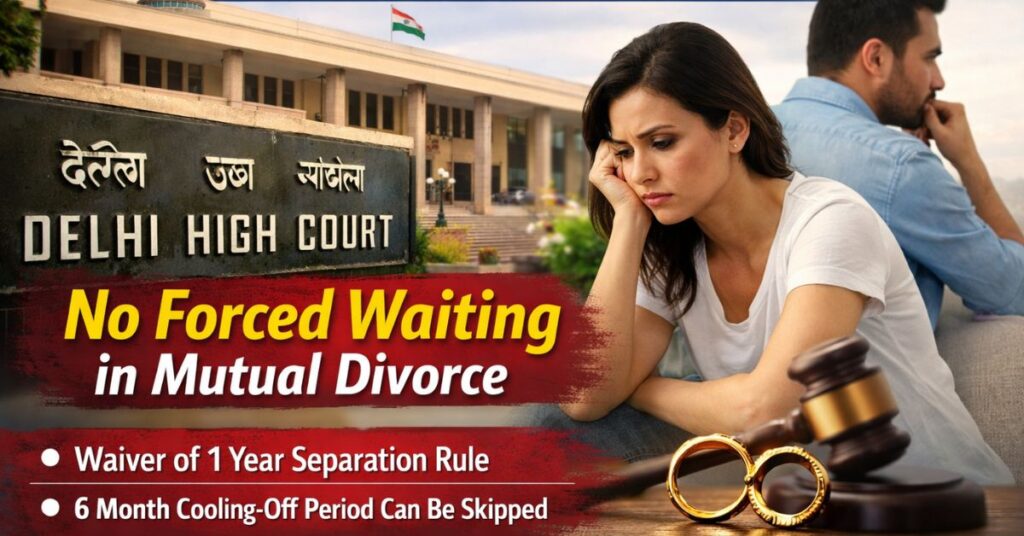Introduction
In a significant case, W.P.(C) No. 20076 of 2009, the constitutional validity of Section 10A of Indian Divorce Act was called into question. This provision stipulated a longer period of mandatory separate residence for Christians seeking divorce by mutual consent. The court thoroughly examined the constitutional implications of this provision and its compatibility with Article 14 (Right to Equality)1 and Article 21 (Right to Life)2 of the Indian Constitution. Let’s delve into the court’s analysis and its decision regarding the validity of Section 10A of Indian Divorce Act.
Understanding the Constitutional Challenge
The petitioners argued that Section 10A of Indian Divorce Act, which imposed a two-year period of mandatory separate residence for Christians, violated their fundamental rights under the Constitution. They contended that this provision created discrimination based on religion and imposed an arbitrary and unreasonable restriction on their right to life and pursuit of happiness.
Section 10A of Indian Divorce Act, in light of Article 14 and Article 21

The court carefully examined the constitutionality of Section 10A of Indian Divorce Act, in light of the principles enshrined in Article 14 and Article 21. It observed that while classification and differentiation are permissible in legislation, they must meet two essential tests: (1) the classification must be based on an intelligible differential distinguishing the grouped individuals, and (2) the differential must have a rational relation to the objective of the law.
The court emphasized that the classification in this case was not based on religion but on the basis of individuals seeking the benefit of divorce by mutual consent, irrespective of their religious identity. It noted that the purpose of the provision was to extend the concept of divorce by mutual consent to all individuals within this group, regardless of their religion. Therefore, differentiating among Christians solely based on their religion by imposing a longer period of mandatory separate residence was deemed unconstitutional and violative of the right to equality under Article 14.
Moreover, the court also considered the impact of Section 10A on the right to life under Article 21. It recognized that the right to marry and the right to secure a divorce are fundamental aspects of the right to life. The provision’s imposition of a longer waiting period on Christians seeking divorce by mutual consent, while other religions faced shorter periods, was viewed as arbitrary, fanciful, and oppressive. Hence, it was held to be in violation of the right to life under Article 21.
Court's Remedial Action
To address the constitutional concerns and preserve the validity of Section 10A, the court invoked the doctrine of severability. It read down the provision, reducing the mandatory minimum separate residence period from two years to one year. This modification brought it in line with other laws governing divorce by mutual consent and ensured compliance with the constitutional principles of equality and right to life.
Conclusion
The case of W.P.(C) No. 20076 of 2009 sheds light on the constitutional validity of Section 10A of Indian Divorce Act. The court’s ruling serves as an essential precedent, emphasizing the need for fair and equal treatment in the application of laws related to divorce by mutual consent. By striking down the discriminatory provision and upholding the principles of equality and right to life, the court reaffirmed the significance of these fundamental rights enshrined in the Indian Constitution.
1. Article 14 (Right to Equality): The State shall not deny to any person equality before the law or the equal protection of the laws within the territory of India.
2. Article 21 (Right to Life): No person shall be deprived of his life or personal liberty except according to procedure established by law.



